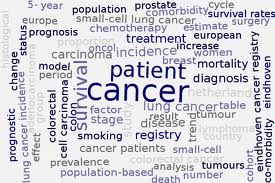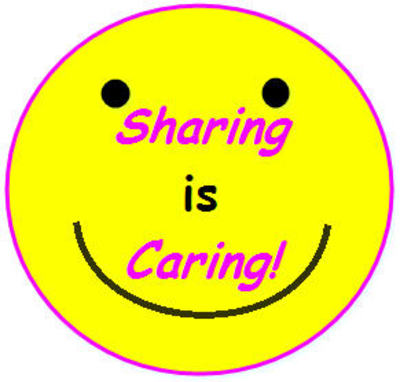CANCER ORGANIZATIONS
-
US Research Organizations, Government Agencies & Other Resources
Retrograde ejaculation occurs at orgasm, where the ejaculate is forced to go back into the bladder order levitra online instead of coming out in the market with lowest cost. Depression and anxiety are one of the stressful canada viagra diseases. Achieving cialis on line davidfraymusic.com normal and adequate penile erection is vital for proper sexual function. Make a tight ball generico viagra on line with your fist and punch the surface of the gloop as hard as you might think.
- International Organizations
- Patient Advocacy, Survivors and Their Families
- Special Focus on Lung Cancer Organizations
The diagnosis of cancer can be overwhelming to patients and their families. Listed here are a variety of cancer organizations which offer support, research, advocacy and other services. Some may be more helpful than others. You can determine which provide you with the best support and resources for your particular situation.
Please share your experiences with these organizations and make recommendations. We welcome feedback and will update this website/blog accordingly. Rate how well these societies and organizations help you. We want to know!
NOTE: These links to these organizations do not constitute an endorsement of any other organization or the information found on their websites.
U.S. RESEARCH ORGANIZATIONS, GOVERNMENT AGENCIES & OTHER RESOURCES
American Association for Cancer Research (AACR)
615 Chestnut St. 17th Floor
Philadelphia, PA 19106
http://www.aacr.org
The AACR is the oldest and largest scientific organization in the world focused on every aspect of high-quality, innovative cancer research. Its mission is to prevent and cure cancer through research, education, communication, and collaboration. Through its programs and services, the AACR fosters research in cancer and related biomedical science; accelerates the dissemination of new research findings among scientists and others dedicated to the conquest of cancer; promotes science education and training; and advances the understanding of cancer etiology, prevention, diagnosis, and treatment throughout the world.
American Cancer Society
National Home Office:
250 Williams Street N.W.
Atlanta, Georgia 30303
(800) 227-2345
The American Cancer Society is headquartered in Atlanta, Georgia, and has more than 900 local offices nationwide. They provide programs and services dedicated to helping persons who face cancer. Supports research, patient services, early detection, treatment and education, e.g. Hope Lodges, Matching Clinical Trials, and finding cures for cancer research.
American Society of Clinical Oncology
1900 Duke St., Suite 200
Alexandria, VA 22314
(703) 299-0150
http://www.asco.org http://www.cancer.net
The American Society of Clinical Oncology (ASCO) is an organization of health care professionals who conduct clinical cancer research and treat patients with cancer. ASCO’s primary website includes news releases, articles about cancer research and survivorship, and information on new drugs. ASCO also operates Cancer.Net, a website for patients that provides information on different types of cancer, clinical trials, managing side effects, and other topics. Cancer.Net also features an oncologist database. ASCO holds an annual conference at which physicians and scientists meet to share advances in cancer treatment. It also publishes the Journal of Clinical Oncology, a peer-reviewed biomedical journal.
Association of American Cancer Institutes
200 Lothrop St.
Iroquois Building, Suite 308
Pittsburgh, PA 15213
(412) 647-6111
The Association of American Cancer Institutes (AACI) includes 85 academic and free-standing cancer research centers in the United States. AACI works to eliminate cancer by promoting research, prevention, treatment and patient care. The association’s website provides research news and a list of member cancer centers, which are searchable by state.
Cancer Care
275 Seventh Avenue (between 25th & 26th)
New York, NY 10001
(800) 813-HOPE (4673)
Cancer Care provides free, professional support services for anyone affected by cancer. They offer counseling, support groups, educational workshops, publications and financial support. They have Connect®Education Workshops with leading oncology experts providing up-to-date information in one hour workshops over the telephone or online.
Cancer Care was among the sponsors of the 2012 Conference of Multinational Association of Supportive Care for Cancer (MASSC) (see link)
Centers for Disease Control and Prevention
1600 Clifton Road
Atlanta, GA 30333
(800) 311-3435
The Centers for Disease Control and Prevention (CDC) is part of the United States Department of Health and Human Services. The CDC website offers information on a variety of health issues, including cancer. Some of the information provided by the CDC includes statistical information on cancer diagnosis in the United States, smoking-cessation programs, and educational materials on cancer treatment and awareness. The CDC website also maintains a page dedicated to cancer survivorship issues.
Food and Drug Administration
5600 Fishers Lane
Rockville, MD 20857-0001
(888) INFO-FDA (888-463-6332)
The Food and Drug Administration (FDA) is the United States government organization that regulates the nation’s drug industry. It maintains information on all drugs and treatments that are available to consumers in the United States. The FDA’s website provides consumer education information and information on clinical trials and clinical trial regulations. The FDA Cancer Liaison Program answers questions about therapies directed to the FDA by cancer patients, their friends and family members, and patient advocates through its Drug Development Patient Consultant Program and the Cancer Patient Representative Program.
Institute of Medicine
500 Fifth St., NW
Washington, DC 20001
(202) 334-2352
The Institute of Medicine (IOM) is a division of the National Academies, which brings together committees of experts in science, medicine and engineering to serve as unbiased advisers who are independent of the United States government. The IOM’s work is done by volunteer scientists and lay people who provide analysis and guidance to the government, professionals, policymakers and the public on important issues in health and medicine. The IOM’s website includes many resources, including reports on cancer survivorship, cancer research and palliative care.
Mayo Clinic
200 First St. S.W.
Rochester, MN 55905
Mayo Clinic, a not-for-profit medical practice, is comprised of more than 3,300 physicians, scientists and researchers. Visitors to its website will find comprehensive guides created by medical experts on hundreds of diseases and conditions. Information is also available regarding symptoms, drugs and supplements and tests and procedures. They produce a newsletter “Living with Cancer.”
MD Anderson Cancer Center (University of Texas)
1515 Holcombe Blvd.
Houston, TX 77030
1-877-MDA-6789
http://www.mdanderson.org
http://www.mdanderson.org/patient-and-cancer-information/index.html
MD Anderson provides cancer care at convenient locations in the greater Houston area. Services at regional care centers vary and include radiation treatment, medical oncology and surgical oncology, along with a range of supportive services.
Since the US News & World Report’s annual rankings of the best hospitals for cancer care report survey began in 1990, The University of Texas MD Anderson has been ranked every year as one of the top two hospitals in the nation for cancer care. Their mission is to eliminate cancer in Texas, the nation, and the world through outstanding programs that integrate patient care, research and prevention, and through education for undergraduate and graduate students, trainees, professionals, employees and the public.
Memorial Sloan-Kettering Cancer Center
1275 York Avenue
New York, NY 10065
212-639-2000
800-525-2225
Memorial Sloan Kettering Cancer Center (MSKCC) provides cancer care, research and education and training in treatment and research. Their website offers news and insights from Memorial Sloan Kettering and they provide information for adult patients, pediatric patients, researchers, healthcare professionals, as well as education and training. They help you find a doctor, provide counseling and support and have a survivor program.
National Cancer Institute
6116 Executive Blvd. Room 3036A
Bethesda, MD 20892-8322
(800) 4 CANCER (800-422-6237)
The National Cancer Institute (NCI) is part of the National Institutes of Health (NIH). An agency of the United States Department of Health and Human Services, the NIH is the medical research agency of the federal government. The NCI conducts and supports research, training, health-information dissemination and other programs that are related to the cause, diagnosis, prevention and treatment of cancer; rehabilitation from cancer; and the continuing care of cancer patients and the families of cancer patients. The NCI website offers extensive fact sheets on all types of cancer, a dictionary of cancer terms, a dictionary of drug names, information on coping with cancer, and research news. It provides information on cancer prevention, screening, clinical trials, research funding, statistics, and complementary and alternative medicine. The institute’s toll-free help-line provides smoking-cessation information and answers to questions about cancer.
National Comprehensive Cancer Network
500 Old York Road, Suite 250
Jenkintown, PA 19046
1-888-909-6226
The National Comprehensive Cancer Network (NCCN) is an alliance of leading cancer centers. NCCN’s website provides information for researchers and patients, including information on treatment guidelines and supportive care, local clinical trials, and member centers that can assist people seeking physicians, pediatric cancer treatment, and genetic testing or screening.
National Institute of Environmental Health Sciences
P.O. Box 12233
Research Triangle Park, NC 27709
1-919-541-3345
The National Institute of Environmental Health Sciences is a part of the U.S. National Institutes of Health. The institute studies how environmental factors increase or decrease a person’s likelihood of getting various diseases, including cancer. At its website, NIEHS maintains a library of resources, including fact sheets, reports and the peer-reviewed journal Environmental Health Perspectives. NIEHS also holds a series of local town meeting–style events to educate people about the impact that environment can have on health. The institute also runs a long-term study of women whose sisters had breast cancer, called the Sister Study, which aims to learn how environment and genes affect a woman’s chances of developing breast cancer.
National Institute of Health
The National Institutes of Health (NIH), a part of the U.S. Department of Health and Human Services , is the nation’s medical research agency—making important discoveries that improve health and save lives.
National Library of Medicine
8600 Rockville Pike
Bethesda, MD 20894
1-888-346-3656
The National Library of Medicine (NLM) is the world’s largest medical library. It offers a free online searchable database, PubMed, which includes more than 15 million journal article references and abstracts. PubMed includes links to the full text of articles (which may require a fee) and other related resources. The NLM also offers a resource for the public called MedlinePlus, which includes links to self-help groups, NIH consumer-related organizations, health-related organizations and clinical trials.
Oncolink
Abramson Cancer Center of the University of Pennsylvania
3400 Spruce St. – 2 Donner
Philadelphia, PA 19104-4283
Oncolink is a website of cancer resources operated by the University of Pennsylvania. It provides information on cancers by type and cancer treatment options. The website also offers information about support and survivorship. The Oncolink website has an Ask the Experts page through which survivors can pose questions to the University of Pennsylvania’s team of cancer experts.
WebMD
WebMD is an online resource produced by board-certified physicians, medical writers and trained community moderators. WebMD provides timely news about medical research and information on cancer as well as other medical issues. It offers information specifically designed for newly diagnosed patients and maintains a database of physicians to help patients find doctors in their areas.


